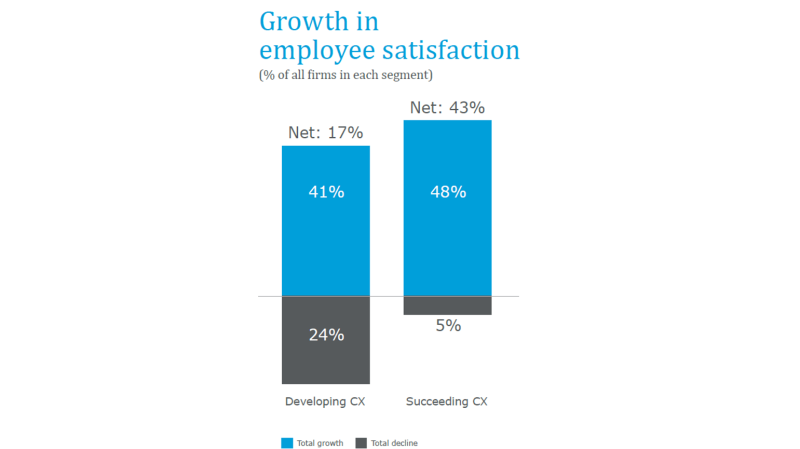Working from home, subsidised gym memberships, yoga classes or staff wellbeing days. What are your weapons in the war for talent among professional services firms?
It turns out attracting and retaining the best professionals does not need to involve expensive office gimmicks. Indeed, new research suggests the most effective weapon firms can add to their arsenal is to invest in improving the client – rather than the staff – experience.
The challenge
The talent war is universally a hot topic for professional services firms right now.
The Commonwealth Bank’s annual CommBank Accounting Market Pulse Report and Legal Market Pulse Report have flagged this intensifying phenomenon among legal and accounting firms in both reports for the past two years.
Firms, the CommBank research shows, are facing a shortage of quality professional staff compounded by trends such as the Great Resignation, and only gradual reopening of borders in the wake of the pandemic (limiting the option to recruit internationally). CommBank’s most recent legal market report, published in May 2022, calls this talent war the sector’s “biggest challenge so far”, with a net 93 per cent of firms reporting that finding quality staff is difficult.
Executive Coach Dr Margaret Beaton, of Beaton Executive Coaching, agreed noting professional services managers are consistently telling her about the “lack of talent, poor consistency of service, decline in CX, overload and stress, less responsiveness, reduced discretionary effort and generally less care”.
Failed attempted solutions
Clichéd solutions to attracting talent that have tended to make headlines in the past include firms purchasing ping pong tables, offering free yoga classes, wellbeing days or increased flexibility. Ever-growing salaries and bonuses are now also being dangled in front of in-demand practitioners to encourage them to switch firms.
But research has shown pay increases have a relatively minimal and fleeting effect on wellbeing or staff satisfaction. Researchers in 2017 tracked the pay and job satisfaction (measured on a scale of 0-10) of about 35,000 German workers over several years. The study found that the anticipation of a large (100 per cent) pay rise bumps up job satisfaction ratings by about 0.25 in the year before the raise. The satisfaction increases by one fifth of a point when the raise is awarded. But by the fourth year, the increase has fallen to less than a fifth in total.
Many of these so-called solutions are one-way offerings that fail to acknowledge why employees are re-assessing their career paths in the first place: as Gallup finds, they are feeling disengaged and disenfranchised.
In other words, staff feel they don’t really matter in the greater scheme of the firm’s success.
Client experience and employee experience are two sides of the same coin.
A real solution: invest in CX improvement
In September, Beaton released a report called The State of Client Experience in Professional Services 2022, which details the results of a survey about firms’ focus on client experience (CX) completed by 263 individuals from 199 professional services firms across Asia Pacific.
The research found firms empowering their employees in the firm’s success by engaging them in strategies to improve the client experience enjoy markedly higher employee satisfaction scores.
The process of improving CX appears key to creating a fulfilling work environment: the most successful firms engaged, educated and upskilled staff in CX. They reported celebrating the success of team members who delivered excellent CX (93 per cent) and created environments where people said they felt empowered to improve processes (92 per cent) plus act on client feedback (85 per cent).
In fact, firms that were determined to be most successful in CX had higher net satisfaction scores and were much less likely to report decreasing employee satisfaction scores. Of CX succeeding firms, a net 43 per cent of firms experienced employee satisfaction growth – compared to 17 per cent of developing firms.



Kim Wiegand, a Beaton partner with two decades’ experience in marketing and business development for law firms, said, “the data shows there is a significant correlation between EX [employee experience] and CX.”
Tony Fittler, Chair of HLB Mann Judd Australasian Association, agreed that “the client experience is intrinsically linked to the employee experience”.
“Our staff enjoy supporting and engaging with the clients. It is important to consider the benefits of seeking employee feedback and how it fits into your CX strategy,” Fittler said.
Experts say investing in CX additionally sparks a virtuous cycle whereby the process of upskilling and engaging employees more simultaneously improves the employee experience – known as EX. Briana Millar, Client Experience Specialist at Tonkin + Taylor, confirms this.
“You can only get so far with CX alone, before you reach a ceiling,” she said.
To deliver a superior CX and create sustainable CX improvements, you have to develop EX in parallel: assess the employee journey alongside the client journey and look for opportunities to influence change
Briana Millar, Client Experience Specialist, Tonkin + Taylor
In a talent market warring for the best employees, it appears professional services firms are overlooking a double-barrelled weapon that can attract and retain the best staff while at the same time improving the business’ bottom line.
Invest in CX and kill both birds.
Download the full CX research report.
Interested in improving your firm’s CX but unsure where to start? Check out Beaton’s market-leading CX transformation services.
Share these insights with a colleague
The corresponding post type is disabled. Please make sure to 1) install The7 Elements plugin under The7 > Plugins and 2) enable desired post types under The7 > My The7, in the Settings section.




